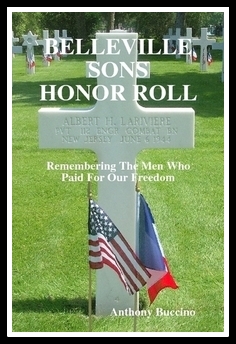Henry Svehla,
Medal Of Honor Awardee
Henry Svehla
(Oct. 28, 1932 – June 12, 1952) was a United States Army
soldier who on May 2nd 2011 was posthumously awarded the
United States military’s highest decoration, the Medal of
Honor, for his actions in the Korean War. Previously he had
been awarded the Distinguished Service Cross.
By June 12, 1952, Svehla was a private first class serving in Korea as a rifleman with Company F, 32nd Infantry Regiment, 7th Infantry Division. On that day, his platoon came under heavy fire and he charged forward to attack the enemy. When a grenade landed amidst his group, he smothered the blast with his body in order to protect those around him. He was killed in the explosion.[1] His remains have never been recovered.
For these actions, Svehla was awarded the Medal of Honor by President Barack Obama on May 2 during a White House ceremony. His sisters Dorothy Mathews and Sylvia Svehla accepted the medal on his behalf. Also receiving a Medal of Honor at the ceremony was the family of Private First Class Anthony T. Kahoʻohanohano, a fellow 7th Infantry Division soldier killed in the Korean War.
Henry Svehla
Essex, New Jersey
 Born
Oct 28, 1932
Born
Oct 28, 1932
Private First Class, U.S. Army
Service Number 21748254
Killed in Action
Died June 12, 1952 in Korea
U.S. Army Pfc. Henry Svehla received the Medal of Honor in 2011. The
Medal of Honor is the highest award for valor in action against an enemy force which can be bestowed upon an individual serving in the Armed Services of the United States. It is generally presented to its recipient by the president of the United States of America in the name of Congress.Private First Class Svehla was a member of Company F, 2nd Battalion, 32nd Infantry Regiment, 7th Infantry Division.
He was Killed in Action while fighting the enemy in North Korea on June 12, 1952.
Declared missing in action, Pfc. Svelha's remains were not recovered. His name is inscribed on the Courts of the Missing at the Honolulu Memorial.
For his leadership and valor, Private First Class Svehla was awarded the Distinguished Service Cross, the Purple Heart, the Combat Infantryman's Badge, the Korean Service Medal, the United Nations Service Medal, the National Defense Service Medal, the Korean Presidential Unit Citation and the Republic of Korea War Service Medal.

Distinguished Service Cross
Awarded posthumously for actions during the Korean War
 The President
of the United States of America, under the provisions of the
Act of Congress approved July 9, 1918, takes pride in
presenting the Distinguished Service Cross (Posthumously) to
Private First Class Henry Svehla (ASN: RA-21748254), United
States Army, for extraordinary heroism in connection with
military operations against an armed enemy of the United
Nations while serving with Company F, 2d Battalion, 32d
Infantry Regiment, 7th Infantry Division.
The President
of the United States of America, under the provisions of the
Act of Congress approved July 9, 1918, takes pride in
presenting the Distinguished Service Cross (Posthumously) to
Private First Class Henry Svehla (ASN: RA-21748254), United
States Army, for extraordinary heroism in connection with
military operations against an armed enemy of the United
Nations while serving with Company F, 2d Battalion, 32d
Infantry Regiment, 7th Infantry Division.
Private First Class Svehla distinguished himself by extraordinary heroism in action against enemy aggressor forces at Pyongony, Korea, on 12 June 1952.
Committed to determine enemy strength and capabilities on key terrain, Private Svehla’s platoon forged up the rocky slope. Coming under heavy automatic-weapons and small-arms fire, the troops began to falter.
Realizing the success of the mission was imperiled, Private Svehla charge forward, firing his weapon and throwing grenades. The men, rallying to the challenge, joined in the assault against a numerically superior foe and inflicted numerous casualties.
Although wounded by a mortar burst, Private Svehla refused medical treatment and continued to lead the attack. During the ensuing conflict, an enemy grenade fell in the midst of the group.
While attempting to dispose of the grenade to protect his comrades from injury which might result from the explosion of the grenade, Private Svehla lost his life.
Sources
American Battle Monuments Commission
Congressional Medal of Honor Society
General Orders: Department of the Army: General Orders No. 18 (February 18, 1953), Action Date: 12-Jun-52
GeneaBlogie
MilitaryTimes.com
The Belleville Times, April 14, 2011
Lessons In Courage - Belleville Patch - Belleville Patch
Belleville Native to Receive Medal of Honor - Belleville Patch
Township to Honor Korean War Hero - Belleville Patch
Korean War hero finally gets the honor he deserves - Belleville Patch
http://en.wikipedia.org/wiki/Henry_Svehla
U.S. Army, Army News Service:
U.S., Defense POW/MIA Accounting Agency, Unaccounted-for Remains, Group A (Recoverable), 1941-1975
U.S., Find a Grave Index, 1600s-Current
Belleville Sons Honor Roll
A Place of Honor and Remembrance In the Home of the Brave
Belleville, New Jersey
Korean War
Belleville
Sons Honor Roll
Remembering the men who paid for our freedom
BellevilleSons.com copyright © 2003-2024 By Anthony Buccino. All rights reserved.
Permissions & other snail mail: PO Box 110252 Nutley NJ 07110
Support this website by buying a book
BELLEVILLE SONS HONOR ROLL - Remembering the men who paid for our freedom
